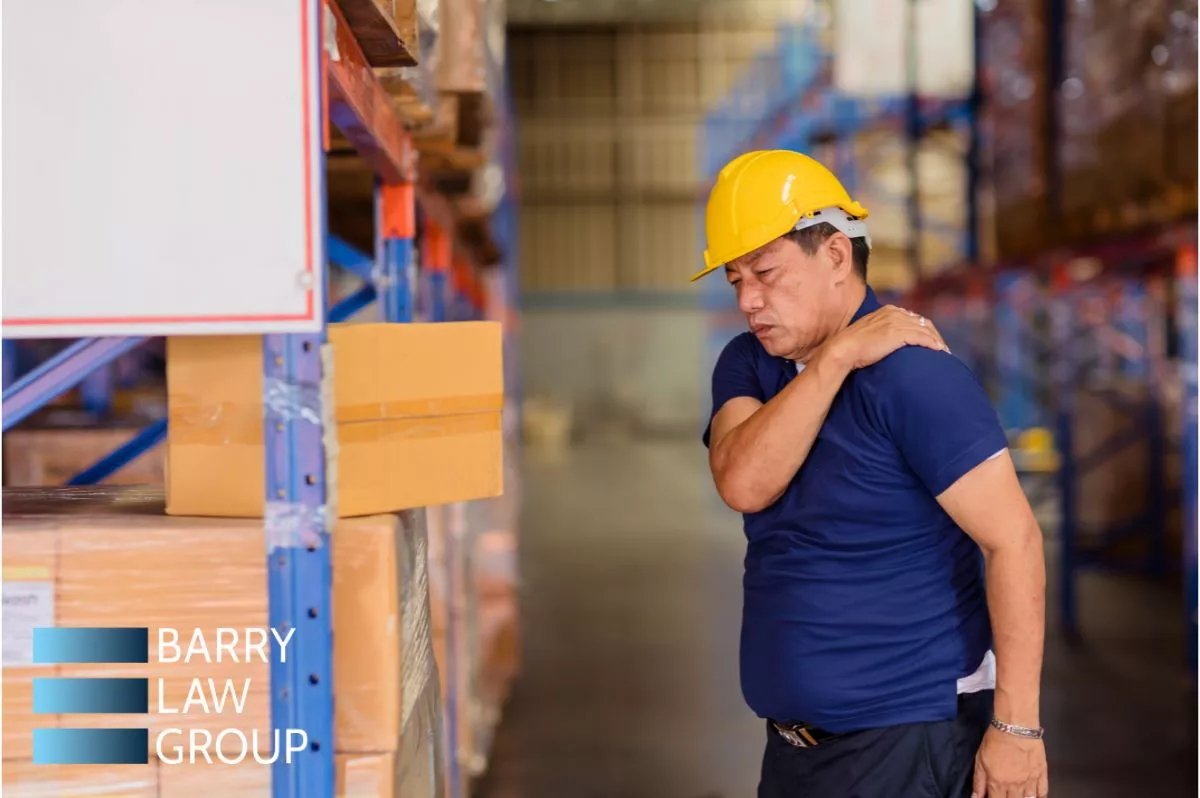Glendale Amazon Warehouse Injury Lawyer


Glendale Amazon Warehouse Injury Attorney
A significant number of Amazon employees are based in California, with many working in warehouses. The nature of warehouse work puts these employees at a high risk of injury, an issue that has become increasingly prevalent as more workers report job-related injuries. If you or someone you know has sustained an injury while working at an Amazon warehouse, consulting a Glendale Amazon warehouse injury lawyer can be beneficial.
Why Choose Us
Injuries sustained in warehouses can have lasting impacts, including medical bills, lost income, and long-term or permanent disabilities. At Barry Law Group, we recognize the importance of pursuing the justice you deserve. Having handled various injury claims, we are equipped to support your case. Each case is unique, and we tailor our approach to maximize your chances of success.
The legal process can be overwhelming. Our goal is to not only provide skilled legal representation but also to clarify your legal rights in a manner you can understand. We can evaluate the specifics of your situation, guide you through each step, and stand by your side to advocate for your rights, allowing you to concentrate on your recovery.
Filing a claim with a business as large as Amazon can feel overwhelming. However, having a lawyer who is experienced in injury law on your side will make the process easier and help you get the compensation you deserve.
Amazon Warehouse Injuries
Workplace injury laws are designed to protect employees, making sure they receive compensation and support if they are injured on the job. Therefore, any worker injured in an Amazon warehouse during the course of their job duties is entitled to certain rights and benefits.
Injuries specific to Amazon warehouses occur within their large facilities that store a variety of products. The size and complexity of these warehouses increase the likelihood of accidents, especially if safety protocols are not strictly followed. Amazon warehouse injuries can range from minor to severe. Some common examples include:
- Falling Objects
- Slips and Falls
- Repetitive Strain Injuries
- Equipment Accidents
- Workplace Violence
- Overexertion
- Equipment Malfunctions
Rights of Injured Amazon Warehouse Workers
If you have been injured while working at an Amazon warehouse in Glendale, you are entitled to several legal protections, including:
- Right to File a Workers’ Compensation Claim. In California, employers must carry workers’ compensation insurance. This allows you to file a claim to cover medical expenses and other compensation.
- Right to Safe Working Conditions. Employers are obligated to provide a safe workplace, which includes implementing safety protocols, providing proper training, and addressing potential hazards.
- Right to Protection From Retaliation: Employers are legally prohibited from retaliating against you for filing a claim. They cannot fire, demote, harass, threaten, or take any other retaliatory actions against you because you filed for workers’ comp.
What to Do After an Injury
As an Amazon warehouse employee, it is crucial to know the steps to take if you’ve been injured to ensure the greatest possible outcome.
- Seek Immediate Medical Attention. No matter the level of severity, it’s important to get medical help as soon as possible. For injuries that develop over time due to repetitive strain, seek medical attention as soon as you notice the symptoms. Let your doctor know that the injury is work-related, and make sure to follow any prescribed treatment plan. Do not resume work until your doctor clears you to do so.
- Notify Your Supervisor. Report the injury to your supervisor or manager as soon as possible, preferably immediately after the incident, as you have a 30-day window from the date of the injury to do so. Missing this deadline can mean losing the right to claim benefits. Amazon has specific procedures for reporting workplace injuries, so make sure you are aware of them and follow them correctly.
- Document the Incident. Record all details about the accident and your injuries, including the location, date, time, the injury itself, and any witnesses who were present. Keep track of your hospital visits, medications, and treatments. It is better to have more information than you need than not enough.
- File a Workers’ Compensation Claim. Submit your workers’ compensation claim as soon as you can.
- Consult a Lawyer. An Amazon warehouse injury lawyer can guide you through the process, ensure you meet all the requirements you need to, and explain your options. If your injury was caused by a third party’s negligence or your employer’s intentional actions, you might be able to file a civil claim for damages.
FAQs
Q: Can You Sue Amazon If You Get Hurt?
A: You can file a workers’ compensation claim against Amazon if you get hurt, but you can only sue in specific cases. Most employees cannot file a personal injury claim, but you may be able to do so if Amazon exhibited intentional acts or extremely egregious negligence in causing your injuries. Workers’ compensation typically covers medical expenses and disability payments, whether or not you or your employer is at fault.
Q: What Information Should I Document After an Amazon Warehouse Injury?
A: After experiencing an Amazon warehouse injury, you should document a significant amount of information to use as legal evidence you may need down the line. Some of these pieces of information include details of the accident, circumstances of the injury, medical visits and diagnoses, photographic evidence, and any communication between you and your employer.
Q: What Happens If You Get Injured at Amazon?
A: If you get injured at Amazon, report the injury to your supervisor as soon as possible. In addition, it’s important to seek medical attention. Next, file a workers’ compensation claim. Amazon is required to carry workers’ compensation insurance. They also have certain procedures to follow to file your claim.
Q: What Is the Most Common Injury at Amazon?
A: The most common injuries at Amazon are slips and falls, injuries from heavy lifting, injuries caused by falling objects, and injuries from excessive physical exertion. The specific types of injuries may vary depending on the tasks performed, the safety protocols of the facility, and the layout of the facility.
Contact Barry Law Group Today
If you have been injured while working at an Amazon warehouse, you don’t have to navigate the aftermath alone. At Barry Law Group, we understand the intricacies of the workers’ compensation process, and we can help you navigate your options. Contact us today for more information.
Success of Your
Legal Matter.
Barry Law Group is comprised of attorneys and longtime staff members who are committed to the success of your legal matter. The firm understands that for most litigation is uncharted worrisome and often terrifying.


